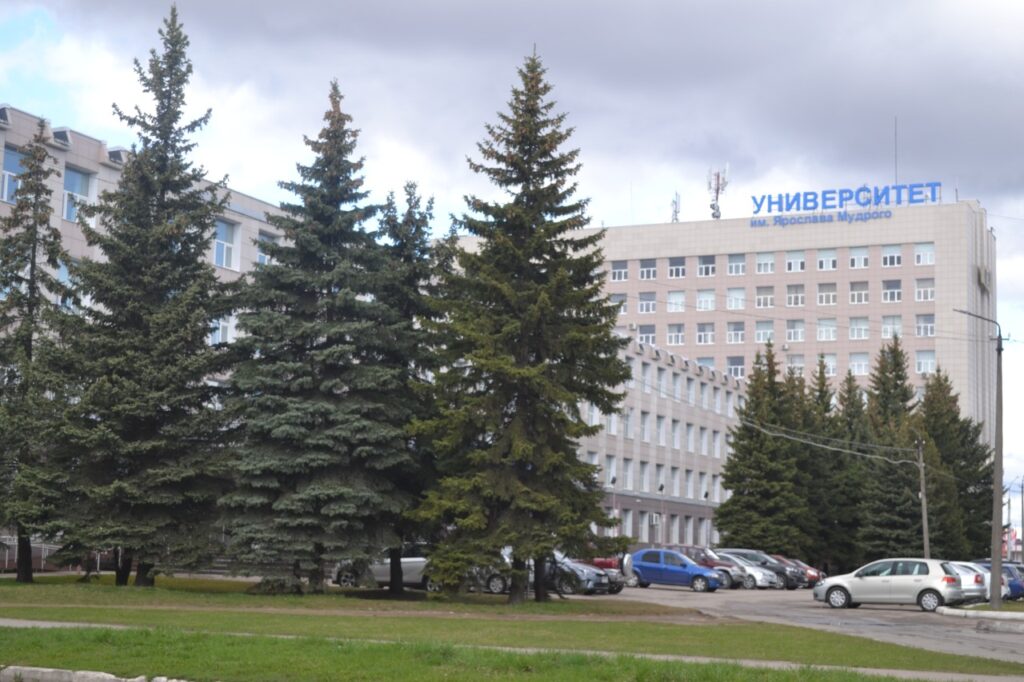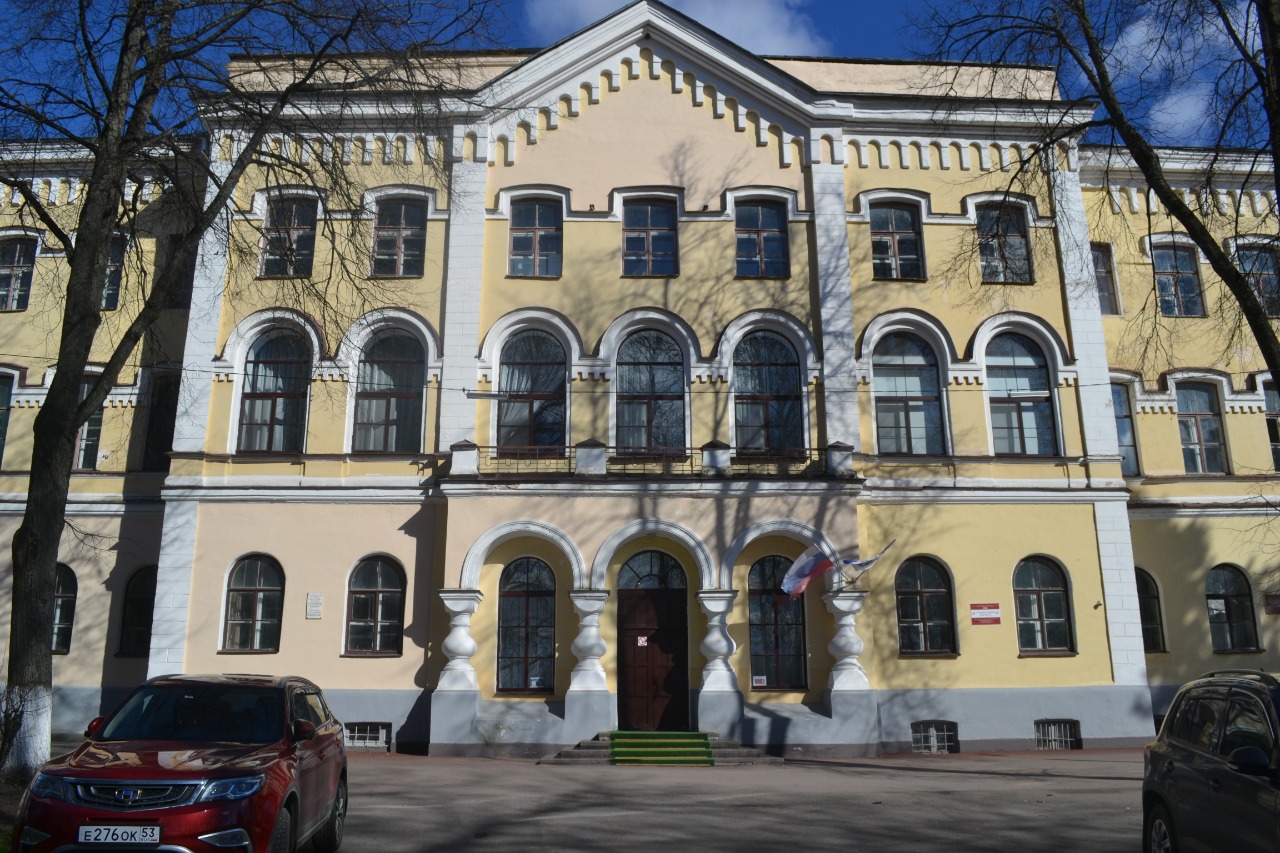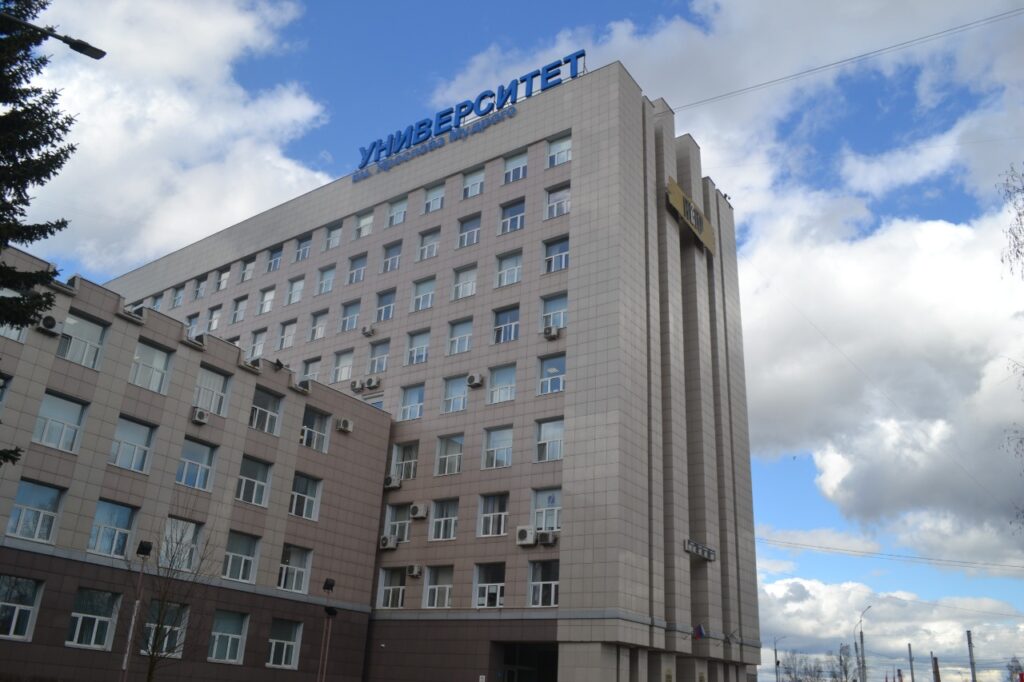



Yaroslav-the-Wise Novgorod State University is the largest educational institution in the North-West of the Russian Federation and the only one in the Novgorod region. Today, the university in Veliky Novgorod is known as the unique “multi-university-technopolis” which in 1993, for the first time in Russia, brought together several universities, technical schools, as well as research and production structures, preserving and increasing their scientific, educational and socio-cultural potential.
Currently, Novgorod State University comprises 7 scientific and educational institutions: Institute of Medical Education, Humanities Institute, Institute of Electronic Information Systems, Institute of Continuous Pedagogical Education, Institute of Economics, Management and Law, Institute of Agriculture and Natural Resources, and Polytechnic Institute. The university also includes 4 vocational colleges: Polytechnic, Humanities, Medical, and Economic.
The university trains specialists at all levels of higher education (Bachelor, Master, PhD degree programs), further education and professional development in 170 educational programs, as well as in secondary vocational education programs. In addition, the Institute of Medical Education of Novgorod State University provides training for medical personnel at all levels, including medical residency.
Today, more than 10 thousand students study at the university, among them about 6,000 Bachelor degree students, 224 medical residents, and 58 PhD students. The university provides degree training for about 800 international students from 51 countries of the world. Internationalization is an important part of NovSU development strategy. At present there are 64 agreements on cooperation and MOUs with HEIs and educational organizations from 22 countries of the world.
High quality education and research is provided primarily by highly qualified personnel. Out of the total number of 600 researchers and faculty members there are 129 Doctors of Sciences and 336 Candidates of Sciences. Such a high number of employees with academic degrees is ensured, among other things, with the effective work of the university Dissertation Councils in physics, philosophy and education.


Traditionally, Novgorod State University relies on the development of science – both fundamental, when implementing projects within the framework of the state research task, and applied, taking into account the specifics of the region. The main advantage of the university is an effective combination of research, innovation and educational activities. For the effective research, the university has established research centers, research and educational laboratories.
The main research areas of the university include physics and technology of magneto-electric phenomena. Mathematical research groups solve generalized nonlinear integral-differential and difference equations; medical researchers work on the problems of prevalence, mechanisms of development, treatment and prevention of major cardiovascular diseases. Archaeological expeditions carry out scientific and protective archaeological research; large education research groups study the development of open educational systems in Russia and abroad. A sufficient number of leading scientists of an economic and socio-humanitarian profile allows the university to develop and implement models of strategic analysis and forecasting of the economic, technological and institutional development of the socio-economic system of the region and the entire North-West of the country.
The university is a venue for major educational, scientific and sporting events at the regional and national level.
In 2017, the university became a platform for the implementation of the pilot projects factory of National Technological Initiative (NTI).
Novgorod State University belongs to the group of “flagship” universities of the country.
Together with University of National Technological Initiative (UNTI 20.35) and the Government of the Novgorod region, Novgorod State University is a co-founder of the regional project “Novgorod Technical School”. On the basis of this technical school it is planned to open more than 30 interdisciplinary educational and practical laboratories for more than 3,000 students of any age. This year five of these laboratories have already been established at the university sites.
In 2019, a new educational format was launched for students of all majors – project-based learning – the project “New University. Evolution”. The basis is a practice-oriented activity through the design and implementation of team-based interdisciplinary projects together with mentors and tutors. Also individual educational trajectories are formed for each student (based on a combination of on-line and off-line training) to build up the competencies necessary for the project.
In 2019, a pilot educational program “General Medicine” for English-speaking students started at the University, currently 80 people are enrolled in this program.
In Novgorod State University the “Process Factory” (Lean Laboratory) was created to educate professionals of various specialties and implement continuous education programs using the basics of project management and lean manufacturing.
The university is actively involved in the implementation of national projects. In particular, within the framework of the national project “Science”, the university became a member of three consortia for the creation of world-class research and educational centers (RECs) and also launched work on the creation of REC “Intelligent Electronics”.
NovSU continues the political and educational mission of the Novgorod Prince Yaroslav-the-Wise and sees its destination in the development of Russian education and science in the interests of an individual, society and state, in glorification of Novgorod lands by learning and unity. Its vocation is to bear professional knowledge and experience, to implement humanistic ideals and to build a social type of the individual adequate to the requirements of our time. NovSU promotes cultural development of the regional community on a national and historical, spiritual and moral basis, while emphasizing the features and dynamics of “a learning university” on the latest organizational and technological basis.
